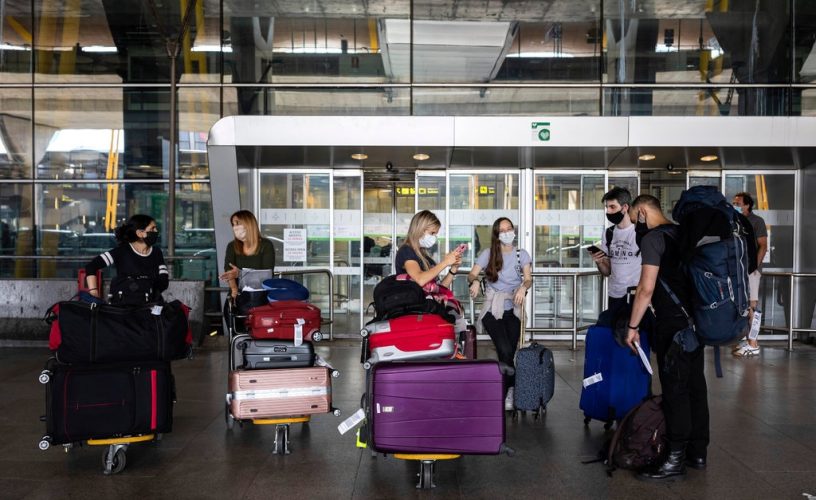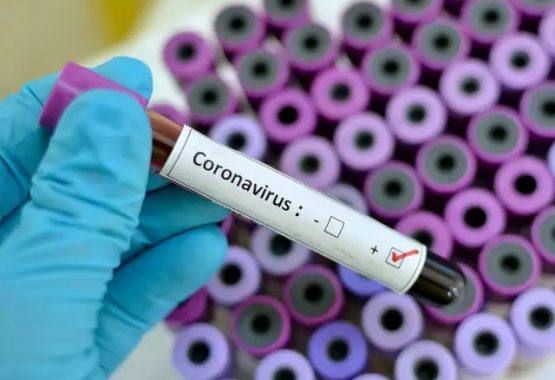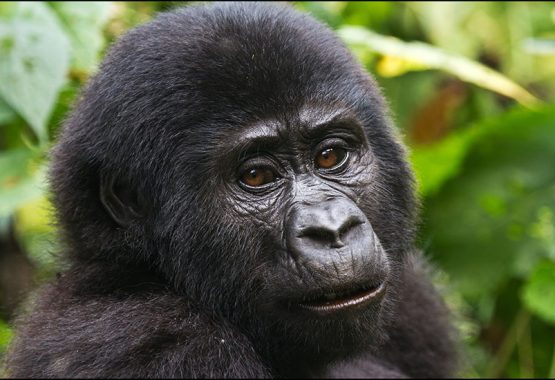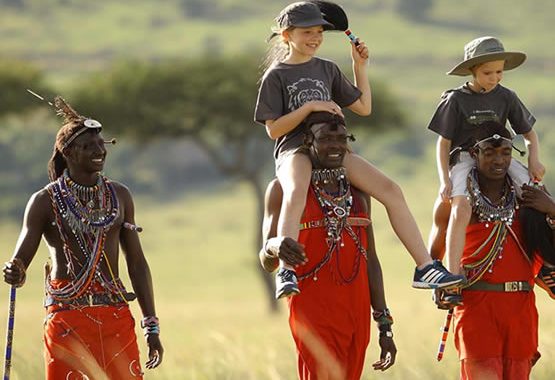European Union officials are racing to agree on who can visit the bloc as of July 1 based on how countries of origin are faring with new coronavirus cases. Americans, so far, are excluded, according to draft lists seen by The New York Times.

BRUSSELS — European Union countries rushing to revive their economies and reopen their borders after months of coronavirus restrictions are prepared to block Americans from entering because the United States has failed to control the scourge, according to draft lists of acceptable travelers reviewed by The New York Times.
That prospect, which would lump American visitors in with Russians and Brazilians as unwelcome, is a stinging blow to American prestige in the world and a repudiation of President Trump’s handling of the virus in the United States, which has more than 2.3 million cases and upward of 120,000 deaths, more than any other country.
European nations are currently haggling over two potential lists of acceptable visitors based on how countries are faring with the coronavirus pandemic. Both lists include China, as well as developing nations like Uganda, Cuba and Vietnam. Both also exclude the United States and other countries that were deemed too risky because of the spread of the virus.
Travelers from the United States and the rest of the world already had been excluded from visiting the European Union — with few exceptions mostly for repatriations or “essential travel” — since mid-March. But a final decision on reopening the borders is expected early next week, before the bloc reopens on July 1.
A prohibition of Americans by Brussels partly reflects the shifting pattern of the pandemic. In March, when Europe was the epicenter, Mr. Trump infuriated European leaders when he banned citizens from most European Union countries from traveling to America. Mr. Trump justified the move as necessary to protect the United States, which at the time had roughly 1,100 coronavirus cases and 38 deaths.

In late May and early June, Mr. Trump said Europe was “making progress” and hinted that some restrictions would be lifted soon, but nothing has happened since then. Today, Europe has largely curbed the outbreak, even as the United States, the worst-afflicted, has seen more infection surges just in the past week.
Prohibiting American travelers from entering the European Union would have significant economic, cultural and geopolitical ramifications. Millions of American tourists visit Europe every summer. Business travel is common, given the huge economic ties between the United States and the E.U.
Despite the disruptions caused by such a ban, European officials involved in the talks said it was highly unlikely an exception would be made for the United States. They said that the criteria for creating the list of acceptable countries had been deliberately kept as scientific and nonpolitical as possible.
Including the United States now, the officials said, would represent a complete flouting of the bloc’s reasoning. But they said the United States could be added later to the list, which will be revised every two weeks based on updated infection rates.
It was unclear if American officials were aware in advance of the exclusion of the United States from the draft lists, which have not been made public.
The draft lists were shared with the Times by an official involved in the talks and confirmed by another official involved in the talks. Two additional European Union officials confirmed the content of the lists as well as the details of the negotiations to shape and finalize them. All of the officials gave the information on condition of anonymity because the issue is politically delicate.
The forging of a common list of outsiders who can enter the bloc is part of an effort by the European Union to fully reopen internal borders among its 27 member states. Free travel and trade among members is a core principle of the bloc — one that has been badly disrupted during the pandemic.
Since the outbreak, the bloc has succumbed to piecemeal national policies that have resulted in an incoherent patchwork of open and closed borders.
Some internal borders have practically remained closed while others have opened. Some member states that desperately need tourists have rushed ahead to accept non-E.U. visitors and pledged to test them on arrival. Others have tried to create closed travel zones between certain countries, called “bubbles” or “corridors.”
Putting these safe lists together highlights the fraught, messy task of removing pandemic-related measures and unifying the bloc’s approach. But the imperatives of restoring the internal harmony of the E.U. and slowly opening up to the world are paramount, even if it threatens rifts with close allies including the United States, which appears bound to be excluded, at least initially.

President Trump, as well as his Russian and Brazilian counterparts, Vladimir V. Putin and Jair Bolsonaro, has followed what critics call a comparable path in their pandemic response that leaves all three countries in a similarly bad spot: they were dismissive at the outset of the crisis, slow to respond to scientific advice and saw a boom of domestic cases as other parts of the world, notably in Europe and Asia, were slowly managing to get their outbreaks under control.
Countries on the E.U. draft lists have been selected as safe based on a combination of epidemiological criteria. The benchmark is the E.U. average number of new infections — over the past 14 days — per 100,000 people, which is currently 16 for the bloc. The comparable number for the United States is 107, while Brazil’s is 190 and Russia’s is 80, according to a Times database.
Once diplomats agree on a final list, it will be presented as a recommendation early next week before July 1. The E.U. can’t force members to adopt it, but European officials warn that failure of any of the 27 members to stick to it could lead to the reintroduction of borders within the bloc.
The reason this exercise is additionally complex for Europe is that, if internal borders are open but member states don’t honor the same rules, visitors from nonapproved nations could land in one European country, and then jump onward to other E.U. nations undetected.
European officials said the list would be revised every two weeks to reflect new realities around the world as nations see the virus ebb and flow.
The process of agreeing on it has been challenging, with diplomats from all European member states hunkering down for multiple hourslong meetings for the past few weeks.

As of Tuesday, the officials and diplomats were poring over the two versions of the safe list under debate, and were scheduled to meet again on Wednesday to continue sparring over the details.
The existing restrictions on nonessential travel to all 27 member states plus Switzerland, Norway, Iceland and Liechtenstein were introduced on March 16 and extended twice until July 1, in a bid to contain the virus as the continent entered a three-month long confinement.
“Discussions are happening very intensively,” to reach consensus in time for July 1, said Adalbert Jahnz, a spokesman for the European Commission, the bloc’s executive branch. He called the process “frankly, a full-time job.”
The E.U. agency for infectious diseases, the European Center for Disease Prevention and Control, warned negotiators that the case numbers were so dependent on the level of truthfulness and testing in each country, that it was hard to vouch for them, officials taking part in the talks said.
ADVERTISEMENT

China, for example, has been accused of withholding information and manipulating the numbers of infections released to the public. In parts of the developing world, case numbers are very low, but it’s hard to determine whether they paint an accurate picture given limited testing.
And in the United States, comments made by President Trump at a rally in Tulsa over the weekend highlighted how easy it is to manipulate a country’s case numbers, as he suggested that domestic testing was too broad.
“When you do testing to that extent, you’re going to find more people, you’re going to find more cases,” Mr. Trump told supporters. “So I said to my people, ‘Slow the testing down, please.’ They test and they test.”
European embassies around the world could be enlisted to help verify or opine on the data provided that would inform the final list, negotiators said, another indication that the list could end up being quite short if European diplomats at embassies said reported numbers were unreliable.
Many European Union countries are desperate to reopen their borders to visitors from outside the region to salvage tourism and boost airlines’ revenue while keeping their own borders open to each other. Some have already started accepting visitors from outside the bloc.
At the other extreme, a few European nations including Denmark are not prepared to allow any external visitors from non-E.U. countries, and are likely to continue with this policy after July 1.
ADVERTISEMENT
Germany, France and many other E.U. nations want non-European travelers to be allowed, but are also worried about individual countries tweaking the safe list or admitting travelers from excluded countries, officials said.
Monika Pronczuk contributed reporting from Brussels, and Albert Sun from New York.








